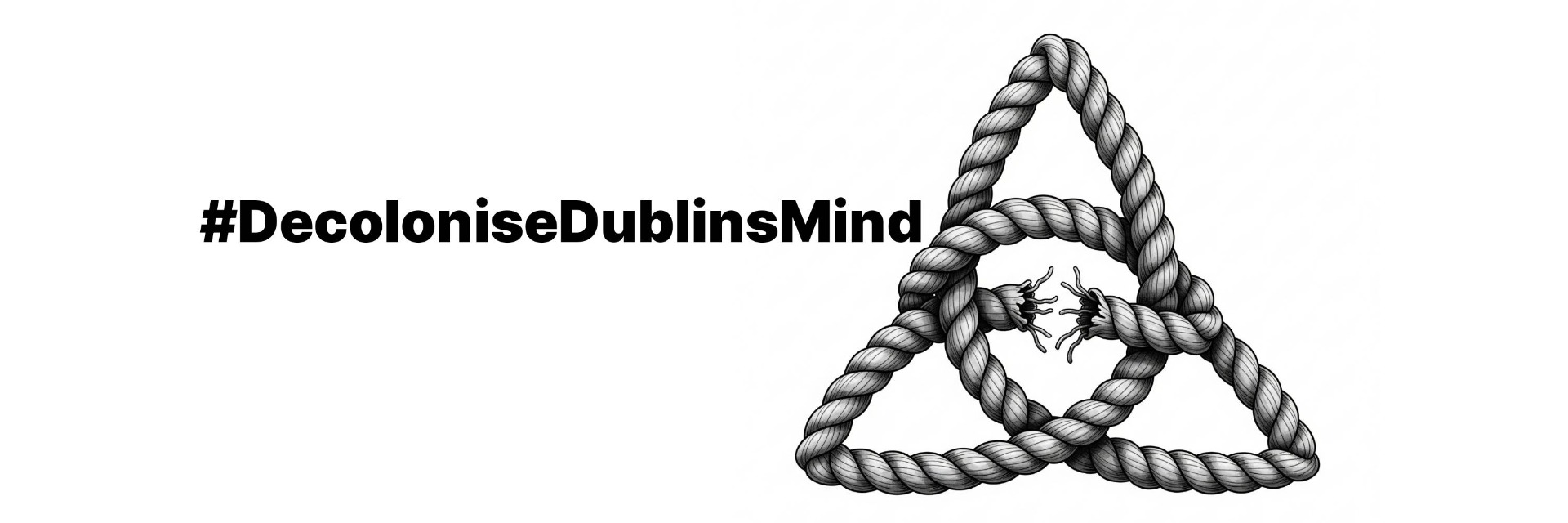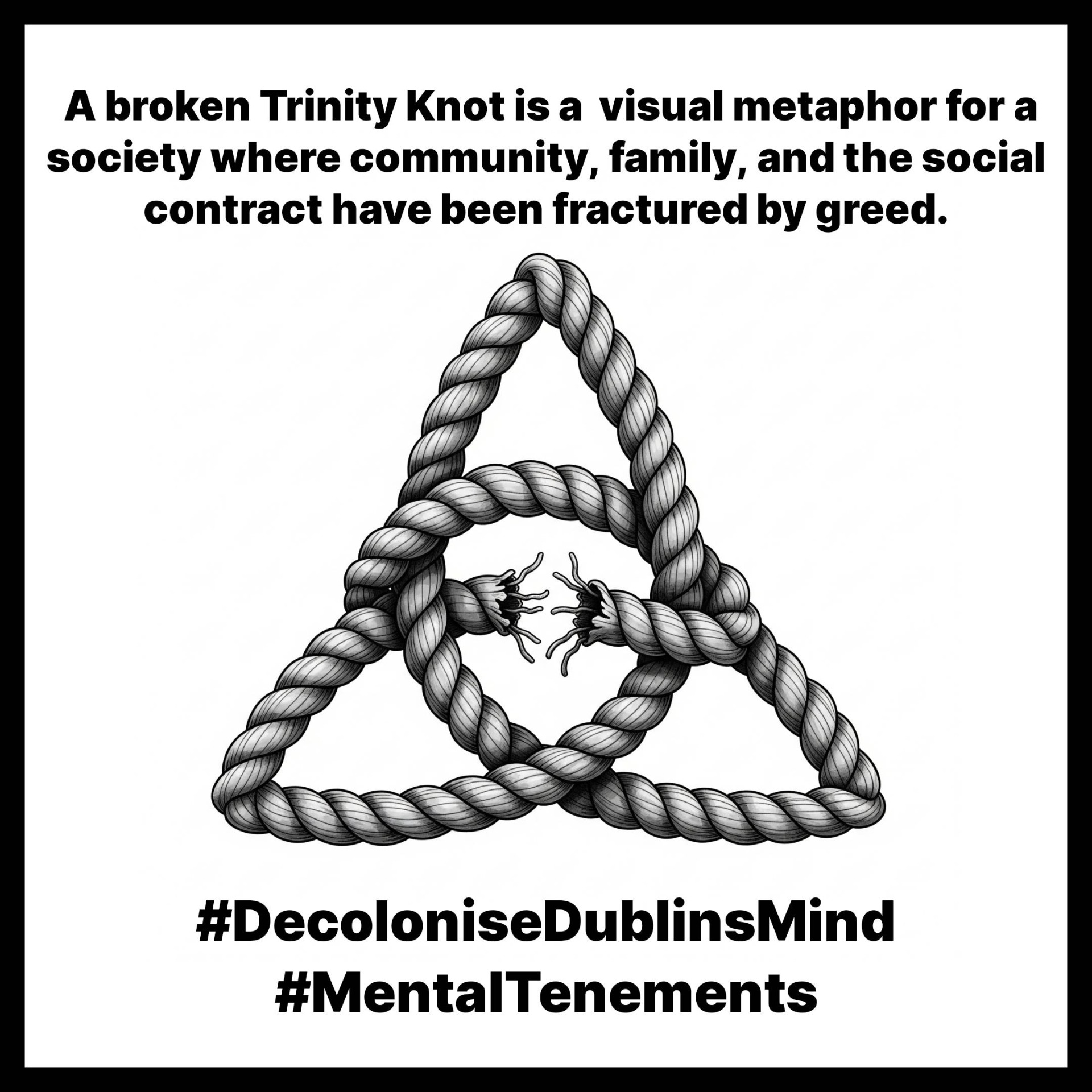Cén scéal? As someone who has chosen to make Ireland home, I find the country's current situation both wonderful and deeply puzzling. It's hard not to notice that Ireland has a unique paradox: a glittering, top-tier global economy combined with public services and infrastructure that feel far below par.

De-colonise Dublin's mind
This campaign, symbolized by The Broken Cycle, is a direct appeal to this truth. The Trinity Knot, a symbol of interconnectedness and eternity, represents the community, family, and social contract that should bind us all. The broken element of the knot is the visible fracture caused by greed, speculation, and a government that refuses to protect the social fabric of the city.
Dublin, a city of immense history and cultural pride, finds itself at a critical crossroads. The visible decay of the city, marked by vacant and derelict buildings in prime central locations, is more than just an aesthetic issue. It is a powerful symbol of a broken social contract, a cycle of neglect and inequality that is not new, but a tragic echo of a colonial past. This "broken city" is defined by a deep and unsettling paradox. We see thousands of properties being used as short-term lets while thousands more lie empty and underutilized due to speculation. This is the modern manifestation of a "toxic trait" where individual profit is prioritized over the well-being of the community. In a city with a severe housing crisis, this is not merely a market failure, it is a moral failure.To understand this crisis, we must look to the past.
The history of Dublin's tenements offers a powerful and disturbing analogy. The tenements were not purpose-built slums, but the sub-divided, overcrowded, and unsanitary remains of grand Georgian houses, abandoned by the colonial elite for the suburbs. This created a lasting visual and social divide—posh parts of the city and "dirty" parts, a visible map of classism that still persists today.
A century later, instead of learning from this history, a new wave of legislation threatens to perpetuate it. New apartment design standards, by allowing for smaller, lower-quality accommodation and reducing essential amenities, are a legal sanction for a modern form of the tenement. This is a failure of vision, an official endorsement of low-quality living that will deepen class divisions and ensure that the future aesthetic and social feeling of Dublin will continue to be one of inequality.
This is where the concept of "decolonising the mind" becomes a crucial call to action. For a long time, the fight against colonialism was seen as a fight for political and military independence. But a more profound form of decolonisation is needed—one that addresses the mental, social, and cultural legacies of that past. This means challenging the colonial mindset that views land as a resource for profit rather than a home for people, and that accepts class divisions as an inevitable part of the urban landscape.

From a distance, the social crisis in Dublin reveals itself not as a random set of unfortunate events, but as a discernible and tragic pattern. For a long time, the roots of this anger have been dismissed or ignored, but as an outsider, I see a familiar cycle of social dysfunction. This isn't a uniquely Irish story, it's a predictable...
From the perspective of an artist, and indeed from the perspective of any person who values their surroundings, the latest planning guidelines from the Irish government feel less like a solution and more like a profound act of negligence. The new "Planning Design Standards for Apartments," ostensibly designed to solve the housing crisis, represent...




